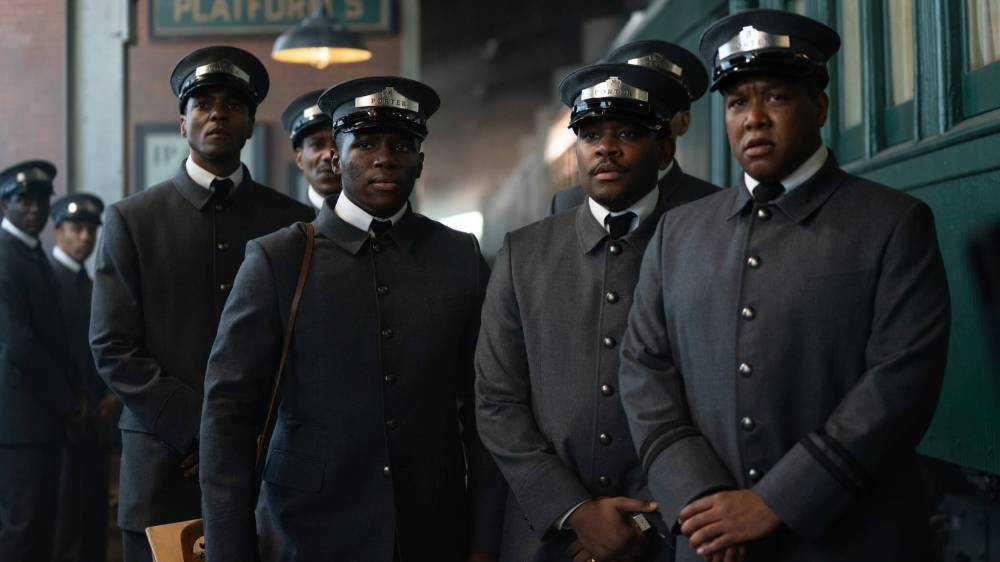Series deftly balances melodrama with meaty issues
Advertisement
Read this article for free:
or
Already have an account? Log in here »
To continue reading, please subscribe:
Monthly Digital Subscription
$0 for the first 4 weeks*
- Enjoy unlimited reading on winnipegfreepress.com
- Read the E-Edition, our digital replica newspaper
- Access News Break, our award-winning app
- Play interactive puzzles
*No charge for 4 weeks then price increases to the regular rate of $19.00 plus GST every four weeks. Offer available to new and qualified returning subscribers only. Cancel any time.
Monthly Digital Subscription
$4.75/week*
- Enjoy unlimited reading on winnipegfreepress.com
- Read the E-Edition, our digital replica newspaper
- Access News Break, our award-winning app
- Play interactive puzzles
*Billed as $19 plus GST every four weeks. Cancel any time.
To continue reading, please subscribe:
Add Free Press access to your Brandon Sun subscription for only an additional
$1 for the first 4 weeks*
*Your next subscription payment will increase by $1.00 and you will be charged $16.99 plus GST for four weeks. After four weeks, your payment will increase to $23.99 plus GST every four weeks.
Read unlimited articles for free today:
or
Already have an account? Log in here »
Hey there, time traveller!
This article was published 19/02/2022 (1388 days ago), so information in it may no longer be current.
Shot last year in and around Winnipeg, the CBC TV series The Porter is, first and foremost, breathtaking in its scope and ambition.
The largest Black-led production in the history of Canadian broadcasting, this is a panoramic portrait of Black Canadian life in the 1920s, centred on a pair of railway porters intent on improving the circumstances of themselves and their families.
Junior Massey (British actor Aml Ameen) and his friend Zeke Garrett (Ronnie Rowe Jr.) hold respectable jobs working as porters for the Cross Continental Railway, and specifically its filthy rich president William Edwards (Winnipeg actor Paul Essiembre in a role not too far removed from the nasty capitalist WASP he played in the musical Stand!). Their homes are in Little Burgundy — a black community in the St. Antoine district of Montreal.

In the first two episodes of the eight-part series made available to press, we see how things are stacked against Black workers, owing to racism in both the railway operation and in the labour union of railway workers, which is whites-only.
Junior and Zeke have their own approaches to bettering their lives. Junior takes to smuggling booze into the U.S. by hiding bottles of liquor on the trains. Zeke tries to work within the system, struggling to make inroads with the labour movement, and even gaining entrance to the decadently posh office of Edwards himself.
The dynamic between the two men is interesting. Maybe it’s the era, but the trappings of the show call to mind an old Warner Brothers gangster movie centred on a good guy/bad guy pair of friends.
Here it’s overlaid with a Malcolm X/Martin Luther King Jr. dichotomy, with Junior very much on the Malcolm side, intent on a better life through whatever means necessary.
That main story is a compelling one, marked early on by a workplace tragedy witnessed by Zeke in which a fellow porter is killed on the job because of a gross absence of safety concerns for Black employees.
Seeing that he will be hamstrung by a racist system, Junior responds by stepping up a smuggling operation, which lands him into the potentially deadly orbit of a crime queen named Queenie (a formidable Olunike Adeliyi).
Zeke attempts to navigate the institutional route with little success, at least in the first two episodes.
The show’s mission to portray a more wide-angle view of the era entails substantial subplots. Junior’s wife Marlene (Mouna Traoré) works in St. Antoine as a Black Cross nurse, a real-life initiative of Marcus Garvey’s Universal Negro Improvement Association (UNIA).
The position takes her into the community, delivering much-needed medical attention to underserved people, including the prostitute Fay (Alfre Woodard), whom Marlene promptly diagnoses with diabetes.
Zeke’s performer friend Lucy Conrad (Loren Lott) enjoys a showbiz-story thread in which she tries to find a way from a Montreal club to a job in New York, a mission complicated by her forbidden love affair with Franklin (Luke Bilyk), who happens to be the son of train magnate William Edwards.
Director Charles Officer (subsequent episodes are directed by both Officer and R.T. Thorne) makes spectacular use of Winnipeg locations both lush and humble. (How appropriate is it that ruthless Edwards is apparently headquartered in the Manitoba Legislature?)
More importantly, the show’s creators walk a thrilling tightrope. The Porter is a good old-fashioned melodrama. But the story it tells is something new and delightfully unprecedented.
randall.king.arts@gmail.com
Twitter: @FreepKing

In a way, Randall King was born into the entertainment beat.
Our newsroom depends on a growing audience of readers to power our journalism. If you are not a paid reader, please consider becoming a subscriber.
Our newsroom depends on its audience of readers to power our journalism. Thank you for your support.


